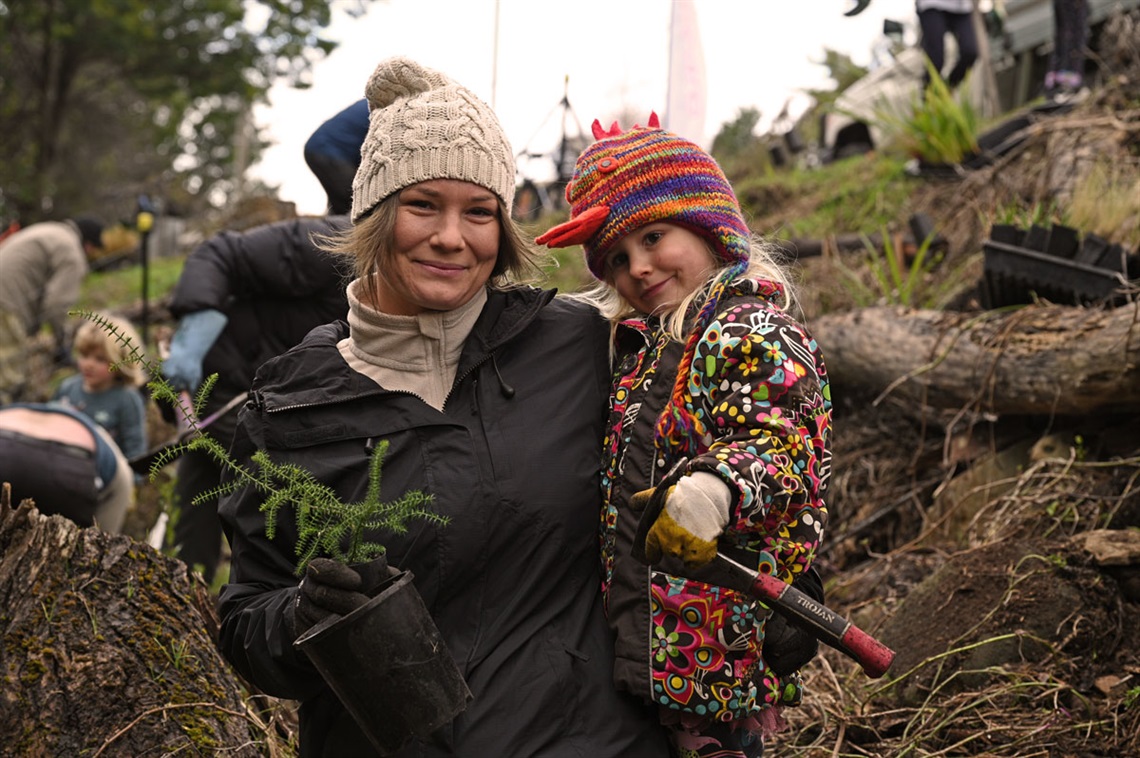
Bushcare volunteers and South Hobart locals took to the banks of the Hobart Rivulet to celebrate National Tree Day this year by planting 700 native trees, shrubs and grasses.
Despite the freezing conditions the morning was a great success, and brings the number of native plants planted along the rivulet by the Hobart Rivulet Bushcare group to more than 3500, an incredible milestone for the relatively new group.
John James has lived in the area for about four years after moving to Hobart from Brisbane. He helped create the Hobart Rivulet Bushcare group and is its convenor.
“I moved to Hobart about four years ago and as a horticulturalist, I would walk along the rivulet and see thistles and blackberry and gorse growing, and I just thought that as a community we could help reduce the amount of weeds along the rivulet and put in more native and endemic plants.
“The Hobart Rivulet is home to our iconic platypus and the trees and native vegetation we plant along the rivulet today will benefit to our local platties well into the future by reducing the amount of run-off and rubbish that enters the waterway and by helping to stabilise the stream bank.
“The trees and shrubs we plant here will also provide shelter for other native wildlife like the local bandicoots and increase tree cover for over the waterway.”
Get involved!
John says the Hobart Rivulet Bushcare group meets on the second Sunday of every month from about 2pm to 4.30pm, and he would love to see more people spending a Sunday afternoon caring for platypus country.
“We welcome people of all ages,” says John. “It’s a real family affair and everyone is welcome to join us.”
This year’s National Tree Day event was part of ongoing work carried out by the City of Hobart and volunteers to restore the health of the rivulet by removing environmental weeds and replacing them with local native plant species.
Trees provide shade and stabilise the rivulet bank, while new riparian plants will provide habitat complexity for waterbugs, an important food source for foraging platypus.
Bushcare is the City of Hobart's largest volunteer program, with more than 800 active participants.
In just one year alone Bushcare volunteers carried out environmental restoration works worth more than $120 000, helping the City of Hobart rid its bushland parks and reserves of environmental weeds, restoring threatened native grasslands on the Queens Domain and restoring degraded bushland and wildlife habitat.
To get involved with your local Bushcare sign up for regular Bushcare email updates.